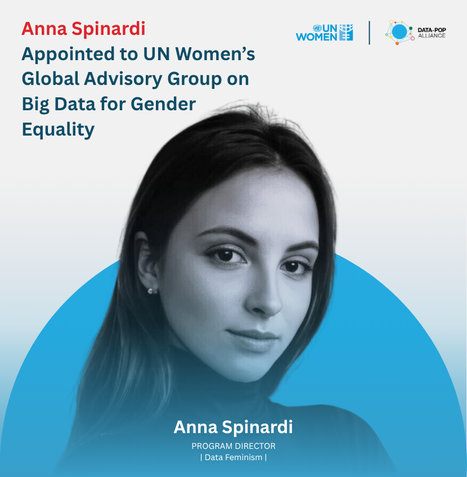Barcelona recently hosted the CHANGE Annual Summit (June 10-12), an event that gathered representatives from various municipalities around the world dedicated to advancing gender equity in urban settings. Among the attendees were Emmanuel Letouzé, DPA Director and Co-Founder, Anna Spinardi, Director of DPA’s Data Feminism Program, and Agustina Pérez, Geographies of Inequalities and Resilient Livelihoods and Ecosystems Program Lead at DPA, who led a presentation and workshop on “Feminist Urban Design”. During this session, they highlighted DPA’s ongoing collaboration with City Hub and Network for Gender Equity (CHANGE) and Open Data Watch on the project “Feminist Urban Design: A Gender-Inclusive Framework for Cities“, being currently piloted in four metropolises. Keep reading to learn more about the event and innovative project.
Pioneering Gender-Inclusive Urban Design
At the heart of DPA’s presentation at the summit was the introduction of the ‘Gender-Inclusive City’ blueprint, developed for the aforementioned project in partnership with Open Data Watch, and funded by CHANGE. This comprehensive guide leverages DPA’s expertise with data-driven approaches to advance gender equality within urban settings, while seeking to address common challenges such as inconsistent data collection methodologies and the misalignment between indicators and city-specific policies. This approach is being implemented across five cities of CHANGE’s network: Barcelona, Spain; Buenos Aires, Argentina; Mexico City, Mexico; Nairobi, Kenya, and Quenzon City, Philippines.
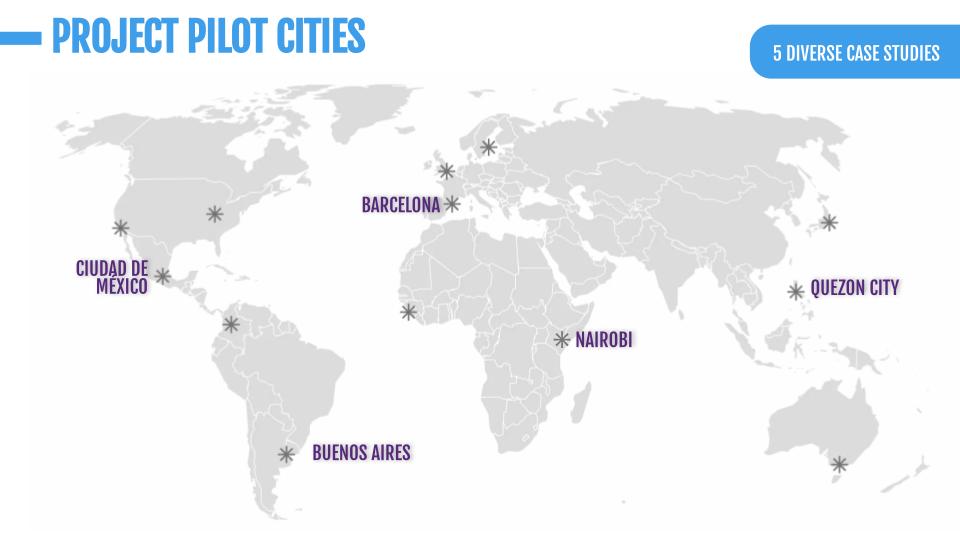
This innovative framework is guided by four key principles: 1) Intersectionality; 2) Participation; 3) Cooperation (Multiscalar); and 4) Sustainability. These principles aim to pluralize urban life and respect the diversity of everyday experiences. Additionally, the framework is grounded in Martha Nussbaum‘s human dignity approach, emphasizing that achieving gender justice requires ensuring individuals have the freedom to pursue valued functions in their everyday lives. This multi-faceted approach ensures that the participating cities are equipped with the knowledge, tools, and methods required to drive meaningful progress in the realm of urban gender equity.
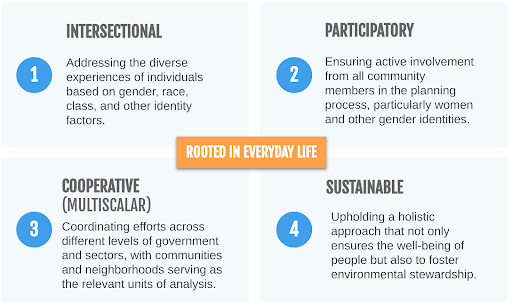
Furthermore, the ‘Gender-Inclusive City’ blueprint offers a well-informed and holistic perspective for other cities looking to refine their gender data collection processes. By doing so, governments can better assess and improve their efforts towards gender equity, ensuring that urban environments are inclusive and responsive to the needs of all genders.
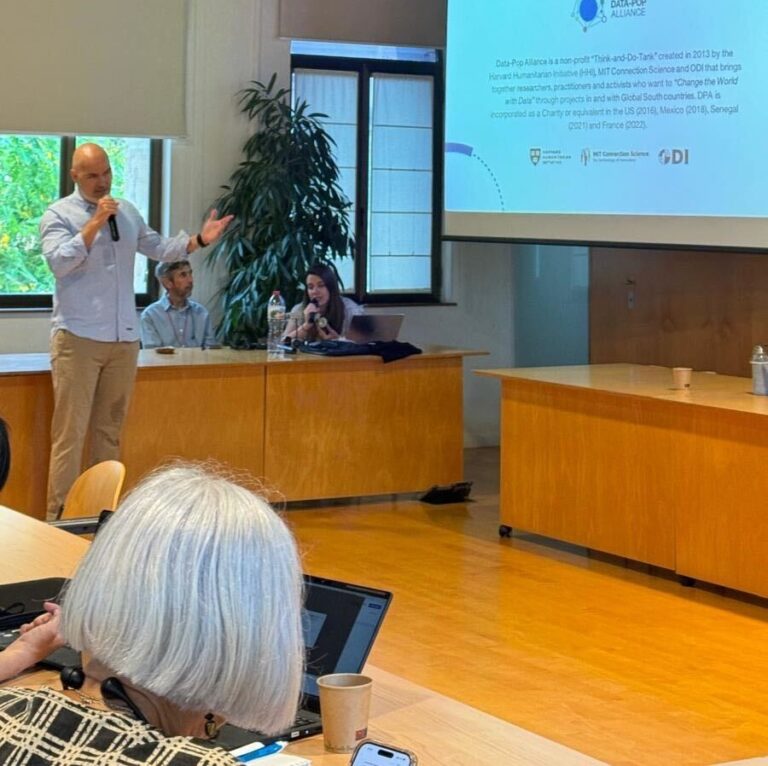
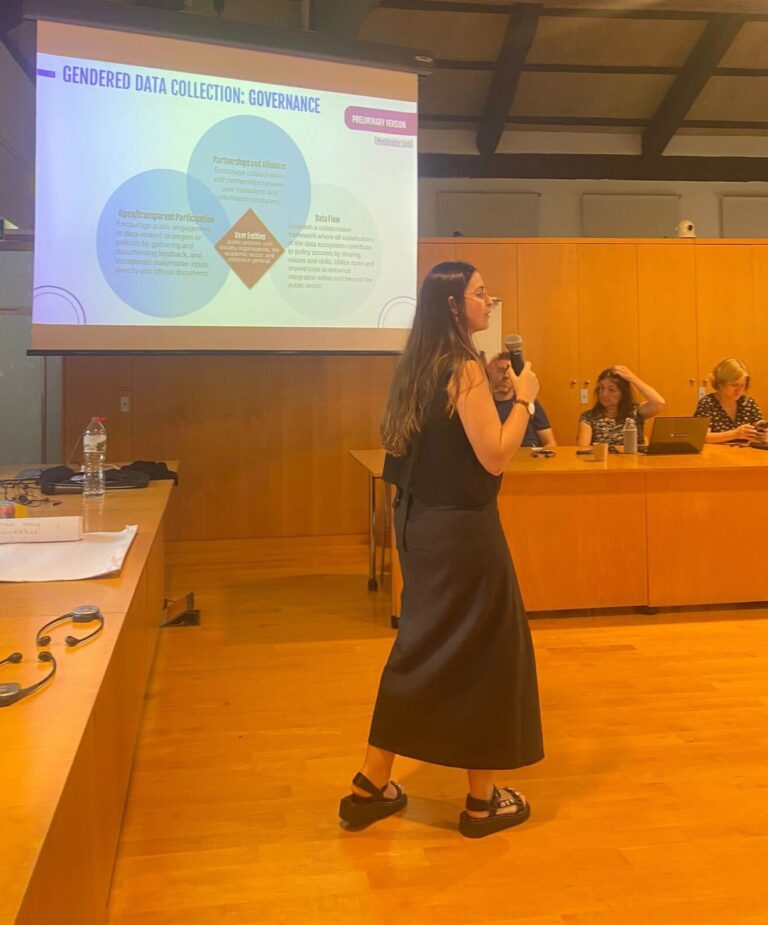
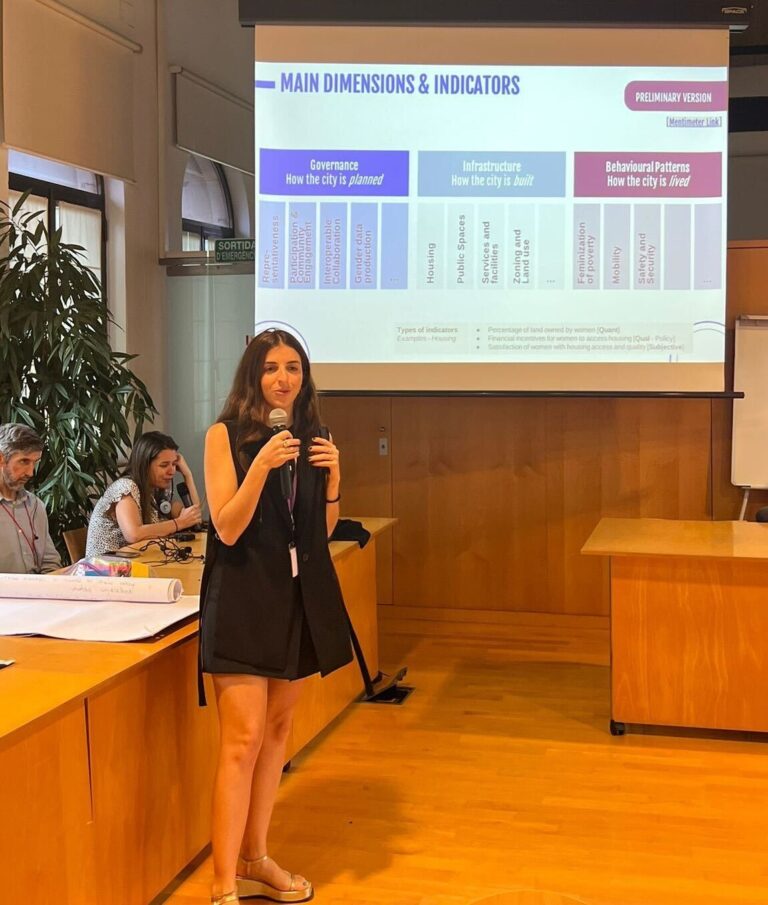
Eureka Moments: What Will Feminist Cities Look Like?
During the workshop segment of DPA’s presentation at the summit, participants were invited to explore the concept of a “feminist city” using a generative AI tool on the Eureka platform. This tool allowed them to create visual representations of their ideas, known as Eureka Moments. Some of these inspiring images are showcased below. This activity not only helped ground the theoretical discussions but also allowed participants to emotionally connect with the positive vision of building cities that are more inclusive, safe, and sustainable. Pictured below are the “Moments” created by Agustina (DPA), Anna (DPA) and some of the participants.
Looking Ahead: Building the Future Together
As we reflect on the insights and achievements shared at the CHANGE Annual Summit, it’s clear that the journey towards feminist urban futures is both challenging and inspiring. The strategies and frameworks discussed, particularly DPA’s ‘Gender-Inclusive City’ blueprint, provide a roadmap for cities to enhance their gender data collection and equity initiatives. The ongoing project with Open Data Watch and CHANGE will be finalized later this year, and we look forward to sharing more on the resulting insights and outcomes.
The Summit not only facilitated the exchange of knowledge but also served as a practical platform for member cities to test solutions and access valuable resources. As we prepare for the upcoming year, the CHANGE network is poised to make significant strides in creating fairer, more inclusive urban environments.
Together, we can transform our cities into beacons of equality and inclusivity, ensuring a better future for everyone.
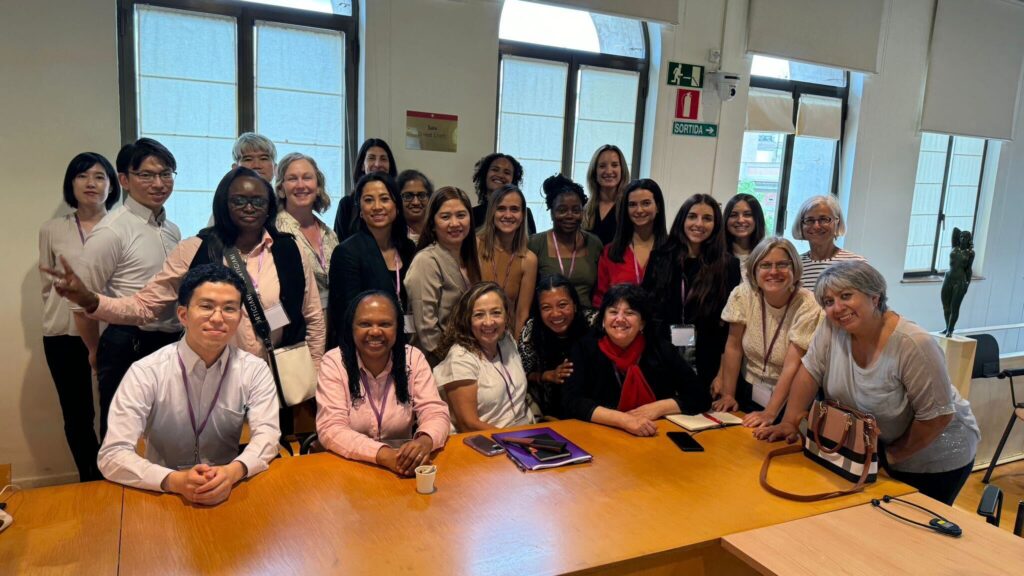
To learn more about our work on Data Feminism and Geographies of Inequalities, click the buttons below to check out the Program pages.


![M002 - Feature Blog Post [WEB]](https://datapopalliance.org/wp-content/uploads/2025/10/M002-Feature-Blog-Post-WEB.png)






